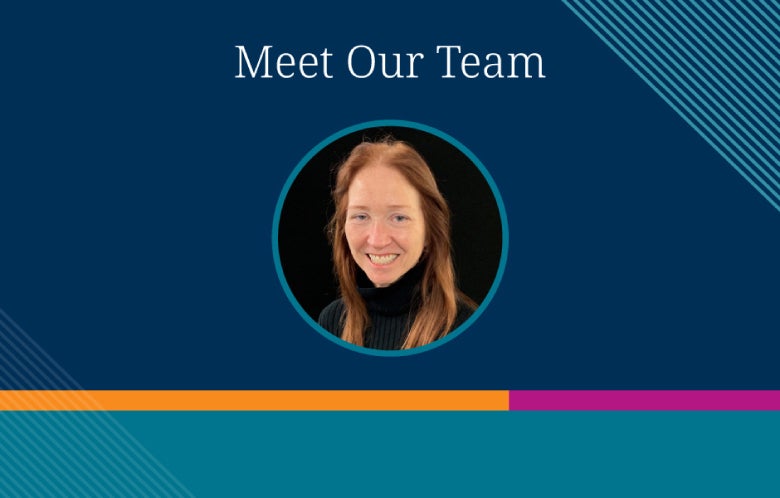One of EBSCO’s core values is to provide excellent customer service, which includes providing customer training, both online and onsite. Learn about Richard Crookes’s role at EBSCO, and how his experience as a former librarian continues to help support medical libraries today.
Who doesn’t love to start with a fun fact?! Tell us a little about yourself.
I began my “library career” as a part-time library assistant at a liberal arts college in Texas, USA in the early 1990s. To this day, people still think I am from the U.S. because of the occasional “twang” when I am presenting!
Before joining EBSCO, what did you do?
I worked as a Chartered Librarian in the National Health Service (NHS) for 13 years, having graduated with an MA in Librarianship from the University of Sheffield. During this time, I worked as a nurse education librarian, webmaster for a Regional Library Service, knowledge officer, clinical librarian and then finally a resource centre manager, supporting healthcare professionals in the community.
What made you want to change from working in the library to helping support the library?
Funnily enough, while in my last librarian post in the NHS, I had heard that Claire Honeybourne (a former NHS Librarian) had joined EBSCO and I thought “maybe I should do this someday” as EBSCO were a key provider to NHS at the time. Then the organization I worked for closed, and I took a four month sabbatical. During that time, I was put in touch with one of the leading NHS librarians about future jobs and she notified me of a medical trainer post at EBSCO, which I felt I could do, so I took up the opportunity.
You are currently Senior Customer Engagement Manager. What does that mean?
Since I started with EBSCO in 2011, the role has expanded from mainly a training role to working more closely with customers to support them and let them know how to make the most of their EBSCO products and services. This includes advising on optimisation, educating on to improve user access to their resources, as well as the more traditional responsibilities of demonstrating products, running workshops, etc. We incorporate much of this work in our regular webinars and onsite visits.
What are point-of-care products? Who use these products, and why?
Point-of-care products, which can also be described as clinical decision support tools, including DynaMed™ an evidence-based clinical resource, and Nursing Reference Centre Plus, which is designed to support healthcare professionals with evidence-based summaries and information to direct patient care.
Such tools comprise secondary evidence, in other words, the searching and evaluation of the research has been done and summaries are produced based on this recent evidence and recommendations may be made.
These are typically required of clinicians, nurses and allied health staff to ensure they are basing their treatments and interventions for patients on the most reliable and recent evidence that’s available in a timely way, with easy-to-navigate content.
We often learn more when we are shown something by another person than by reading or studying alone. I have found that even those who have knowledge of our products can learn a lot from a senior customer engagement manager!
We often learn more when we are shown something by another person than by reading or studying alone. I have found that even those who have knowledge of our products can learn a lot from a senior customer engagement manager!
What are some of the most common questions you receive as a medical trainer?
Typically, they revolve around how to create literature search strategies for the EBSCOhost interface (CINAHL, MEDLINE, etc.), how to search (specifically) for Title and Abstract simultaneously, and how often are the databases updated. Another common question is, what UK content is included?
If you have 30 seconds to give one piece of advice to your customers, what would it be?
Take advantage of the complimentary training we offer via WebEx, for NHS-related training and the European Training Portal, as well as onsite when required. We often learn more when we are shown something by another person than by reading or studying alone. I have found that even those who have knowledge of our products can learn a lot from a senior customer engagement manager!
Has your experience working in the library helped you in your current position, and if so, how?
Obviously, the professional knowledge and expertise that I gained over 13 years, delivering training and supporting healthcare staff with literature searches, has been very helpful, not to mention working with different databases and systems etc. I can appreciate the kind of information needs and processes libraries must work with, their environment, and how to apply them to EBSCO products. Then there is also an affinity with fellow librarians who recognise my credentials. I believe this gives me a standing with them, making it much easier to engage when discussing their needs and therefore they trust me.
What do you enjoy most about your job?
I have never found it boring! There is just so much we get involved with, different challenges, great management and a lovely group of people I work with, who at times, feel more like family than colleagues.
Thank you Richard, for sharing your story!
We asked our customers what benefits the training they’ve received by our Specialists has brought to their users and institution. Here are their comments:
Jennifer Manders, Librarian at University Hospital Birmingham NHS Foundation Trust:
“It is essential for Trust Staff to be informed of the latest evidence-based information available in order to provide high quality care to patients and to ensure accuracy in their research. The training Richard Crookes provided created awareness of databases available in order to achieve this and helped staff to feel more confident with their literature searches in a patient and easy-to-understand manner.”
Stephen Yates, Library Site Manager at University Hospital Birmingham NHS Foundation Trust:
“Having resources available to Trust Staff is important, what is more important is training staff on how to use them and raising awareness of them in the Trust. EBSCOs training has proved a great way to do that, a knowledgeable and approachable trainer provided Trust Staff including the Library Team with the skills and confidence to use the resources we subscribe to. At the end of the session attendees left with the skills and knowledge they need to use of the resources which in turn will help them support Evidence Based Healthcare within the Trust. It also provided library staff with the information needed on how to describe the resources and what user groups they are best aimed at, providing them with the confidence to promote it at both the counter and at Library Outreach events around the our Trust.”


